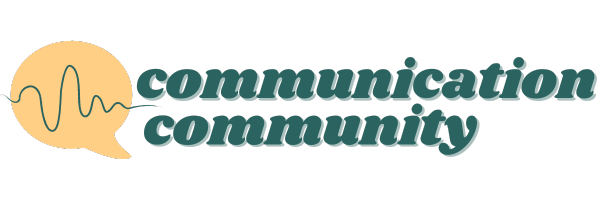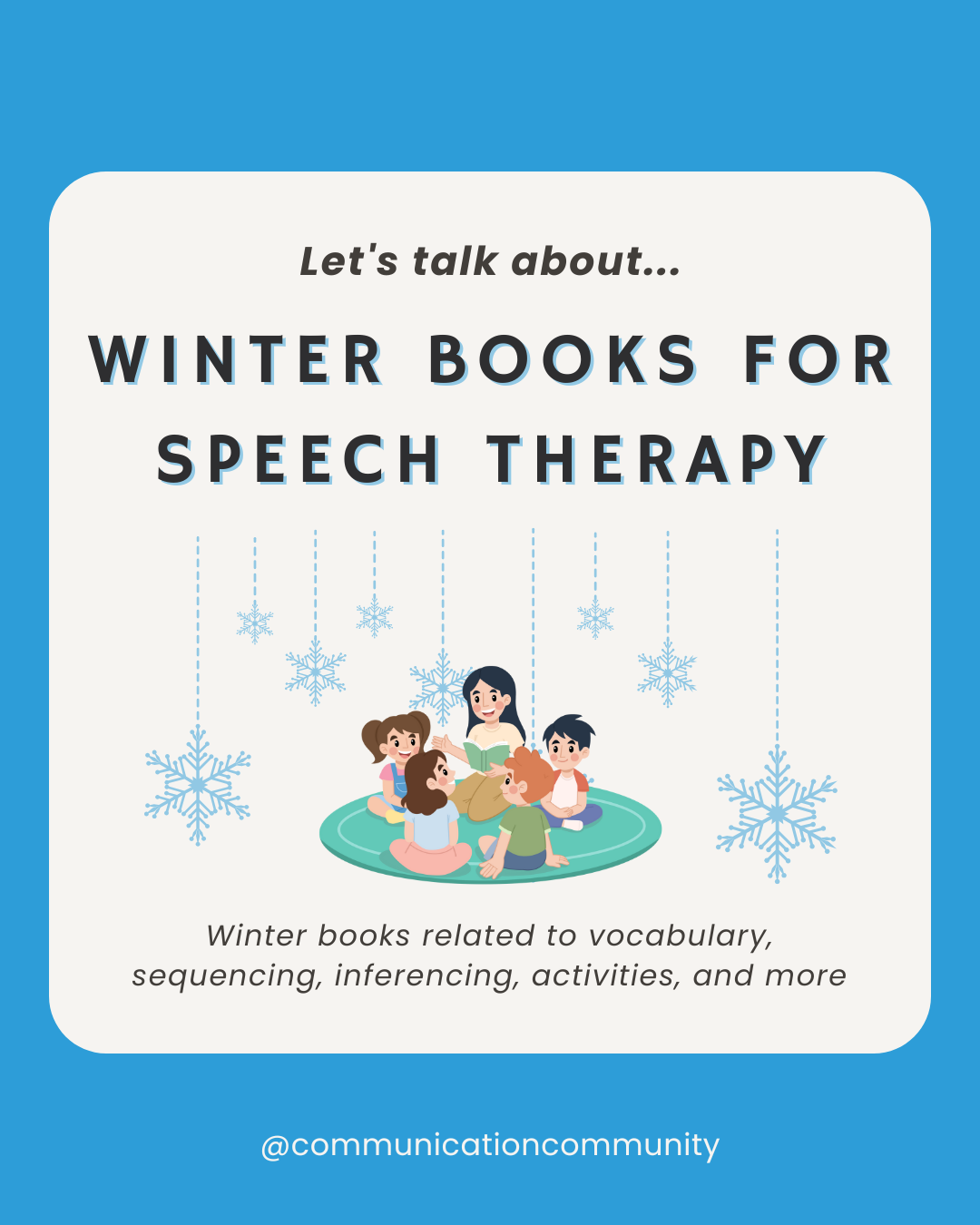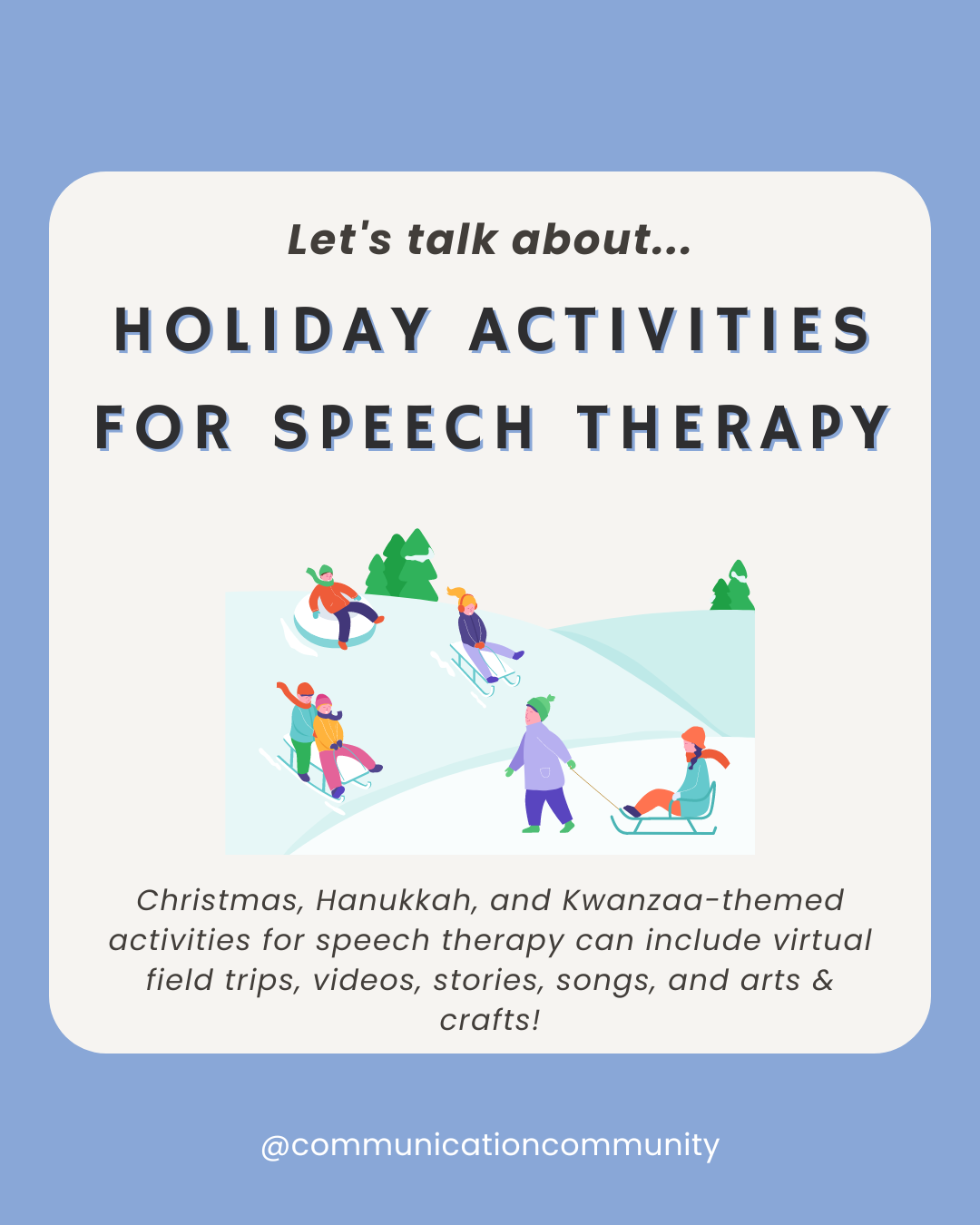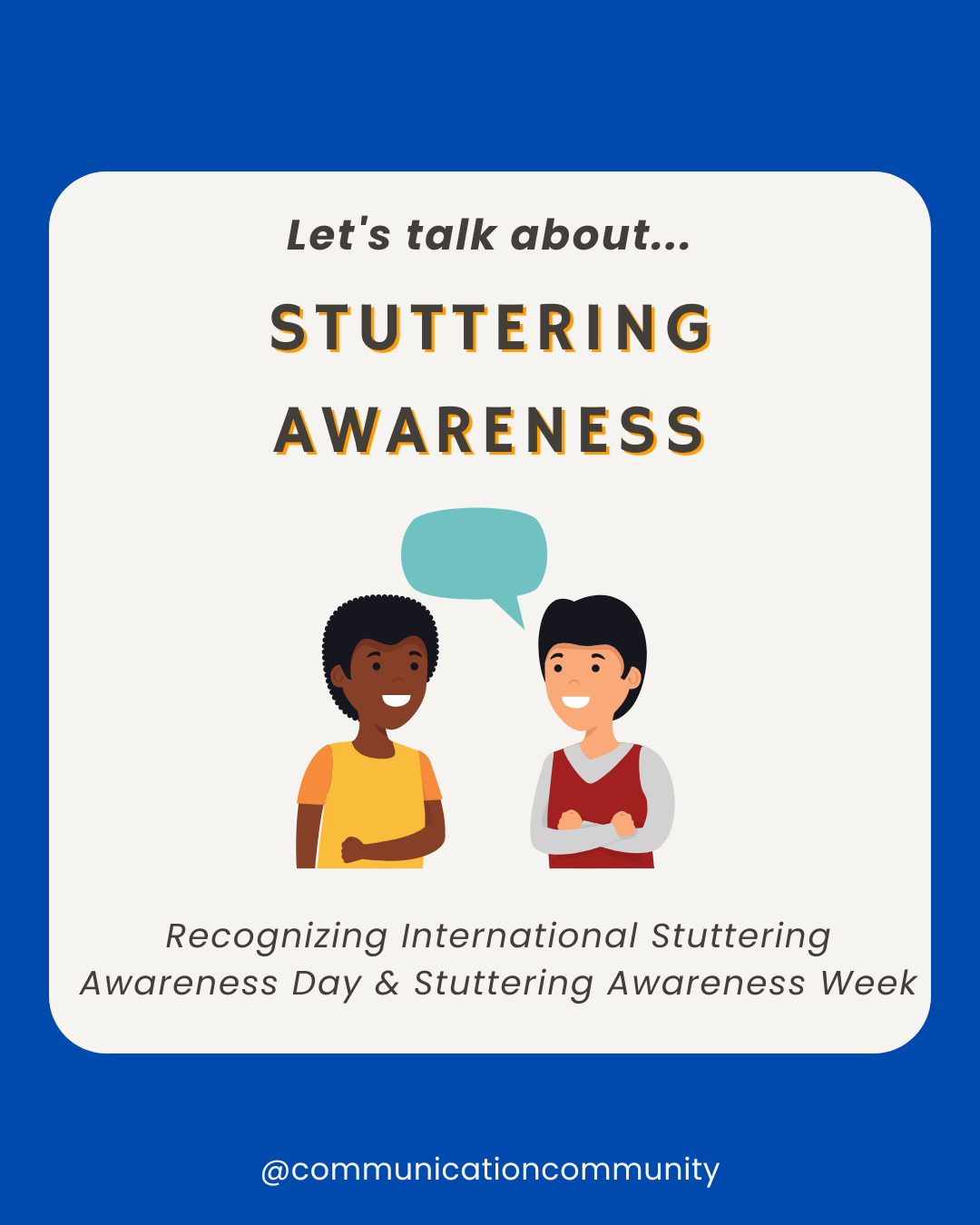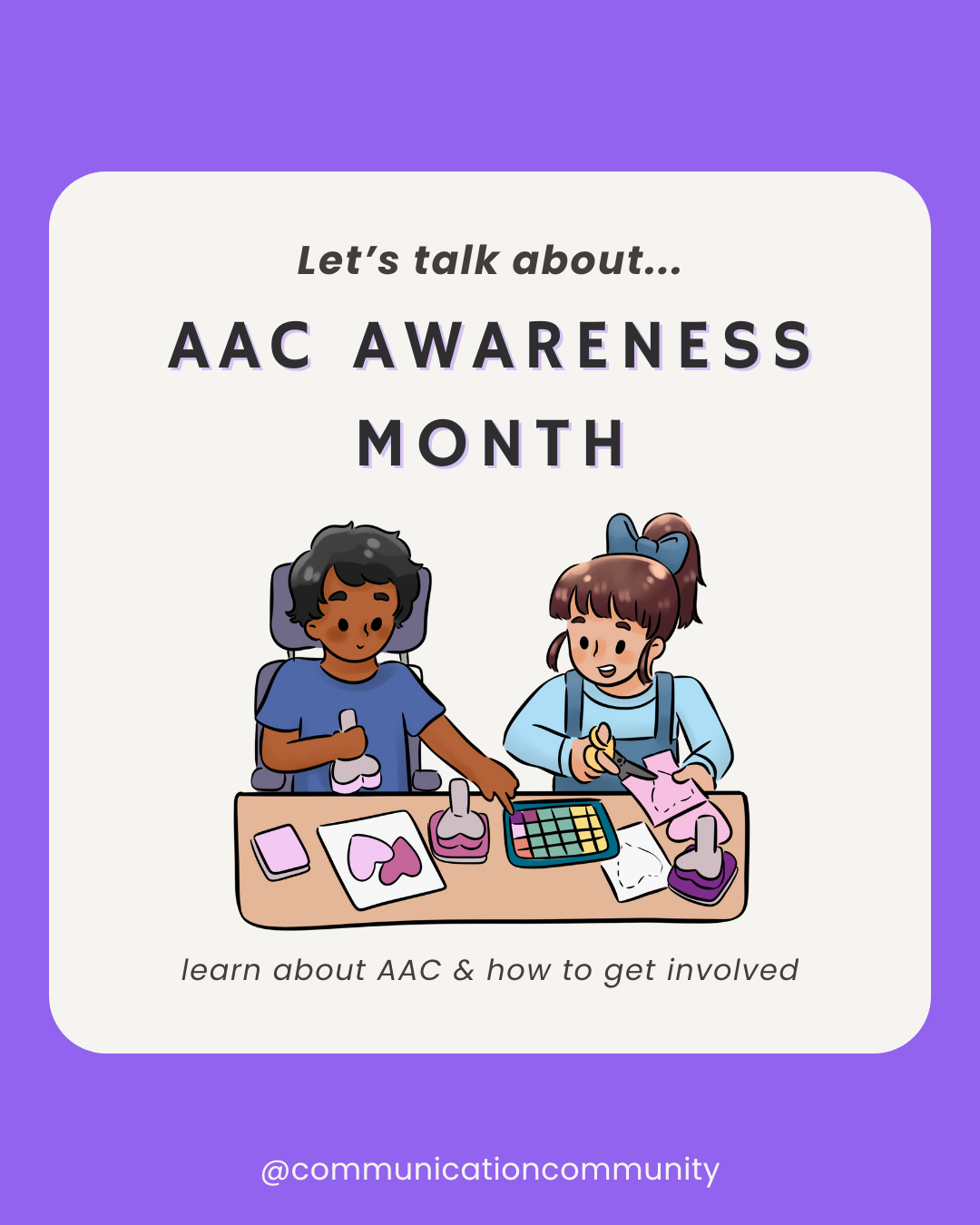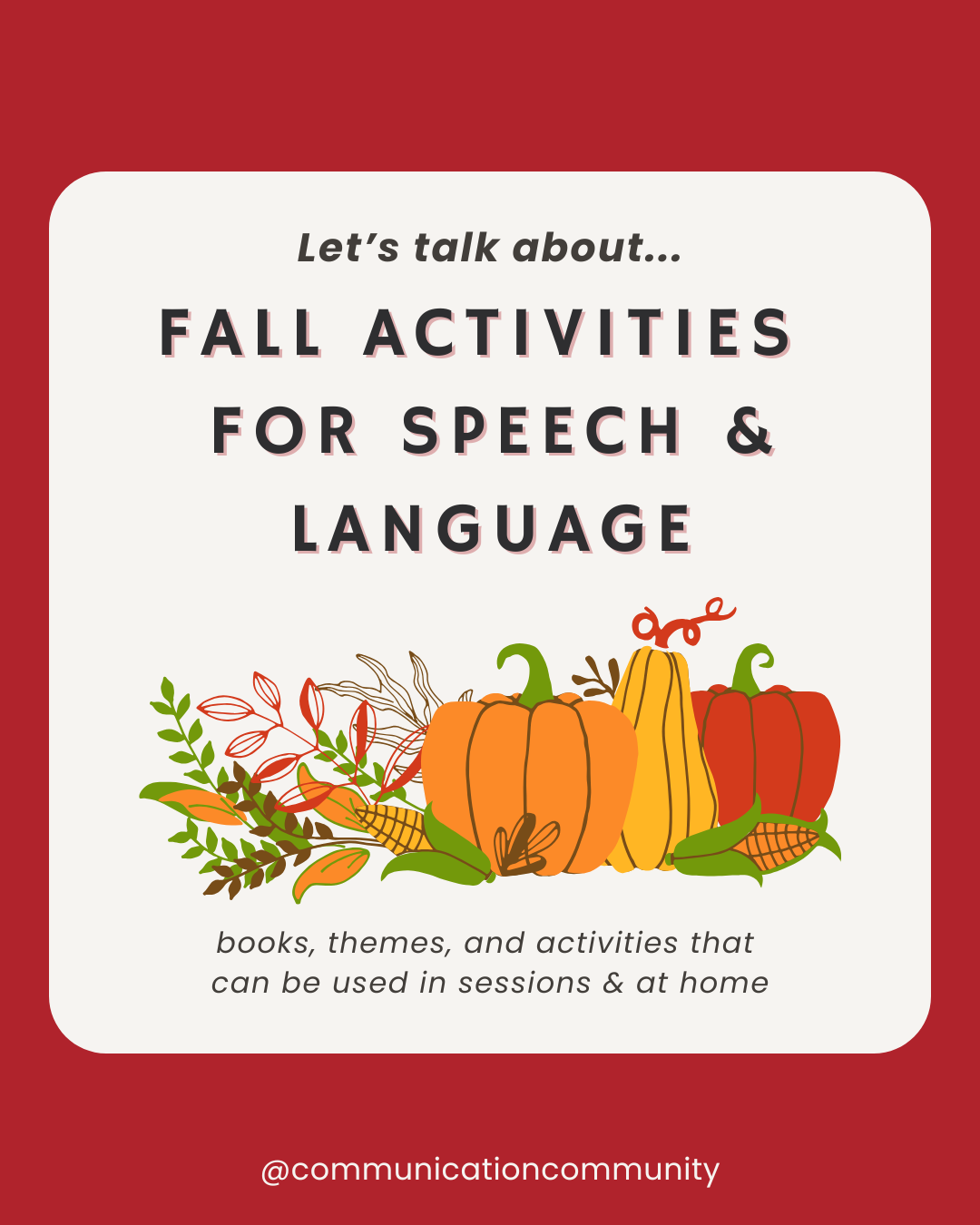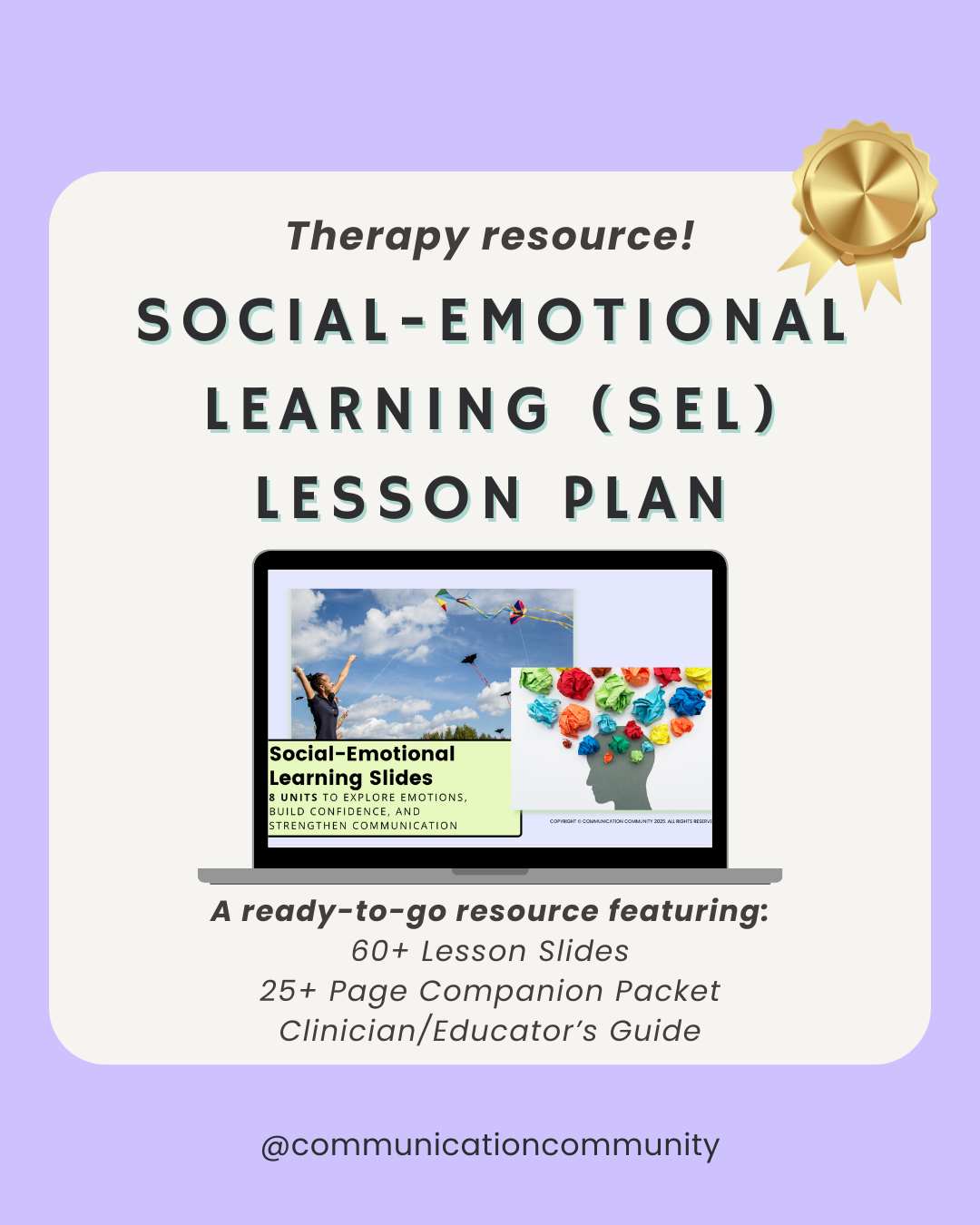Looking for book companions?
Find them inside our Premium Community Resource Library!
Winter Books in Speech and Language Sessions
I use books all the time in my speech therapy sessions! I also do so much more with books than simply reading the words on the page. For example, I point out/label illustrations, ask questions about the story, and emphasize new vocabulary words. I love the flexibility of targeting many different goals using the same book, which makes planning simpler and easier.
Extending Books to Two or More Sessions
I sometimes spend so much time discussing events and concepts within a single story that I don’t even get through a short book in one 30-minute session. I will mark down what page I am on, but during the next session with the client(s), I will review what we previously read, and then continue reading on. There is research on the effectiveness of learning new vocabulary when re-reading books as well!
Give it a try…I encourage you to see how long you can stretch out a book in your next session - and see all the communication-building that occurs throughout!
5 Ways to Use Winter-Themed Books in Speech Therapy:
- Teach new concepts: Depending on where you or your clients live, the winter season might be full of blustery 20-degree days OR mild 65-degree days. Many winter-themed books discuss cold weather, snowstorms, and hibernating animals; however, we know that might be different from your experience! If you live in a place that has a “traditional” winter, you can use these books to discuss what is happening in your area. If you don’t live in a place that experiences the four seasons in the same way, you can use these books to teach about winter in other areas and compare it to your winter at home.
- Learn new vocabulary: There are many winter-specific vocabulary words, including blizzard, freeze, ice, and igloo, that can be taught and targeted while reading winter books. Two ways to extend this practice and understanding are to look up definitions and construct new sentences using them. In addition to talking about the use/meaning of the vocabulary word in the book we are reading, I also try to provide examples of other uses of the word, often with other extension activities (see below).
- Experience different senses: Using books, you can see a variety of winter elements, but there are also ways to hear, feel, smell, and taste aspects of winter as well. Note: Depending on your setting or where you are, not all of these will be possible. You might hear snow plows clearing streets (or listen to them on YouTube), feel fake snow, smell cinnamon, and taste hot cocoa. Having real-life sensory experiences is a great way to build on your book reading in sessions.
- Explore different themes: Beyond the cold and snow of winter, other themes and concepts related to winter can be explored in seasonal stories. For example, different cultures celebrate winter in unique ways; there are festivals on the winter solstice and specific foods prepared for warmth and coziness. Some other sports and activities are traditionally done in the winter as well, including skiing, snowboarding, sledding, ice skating, ice fishing, and snowmobiling.
- Make planning easy: We are all about finding ways to make your session prep as easy as possible! Reading books can make lesson planning so much easier because they’re great for targeting multiple goals. You can target narrative and sequencing skills through book retells, articulation skills through choosing sound-specific words in the stories, and comprehension skills by asking wh- questions throughout (you can find good resources for this through our book companions, which are available inside our Premium Community).
Winter-Themed Books in Speech Therapy: Session Outline
- Introduce the book and title
- Discuss themes in the book.
- Show pictures and/or videos related to the book (if applicable).
- Talk about vocabulary that will appear in the book.
- Highlight sound-specific words that will appear in the book (if you are targeting articulation).
- Start reading the book; emphasize vocabulary and articulation targets. Also, ask relevant comprehension questions including wh- questions, sequencing questions, story elements, spatial concepts, problem-solving, and more.
- Engage in an extension activity. These may include writing/discussing summaries, comparing and contrasting story elements and vocabulary, doing an arts and crafts activity, or playing with related toys. See more ideas and links below.
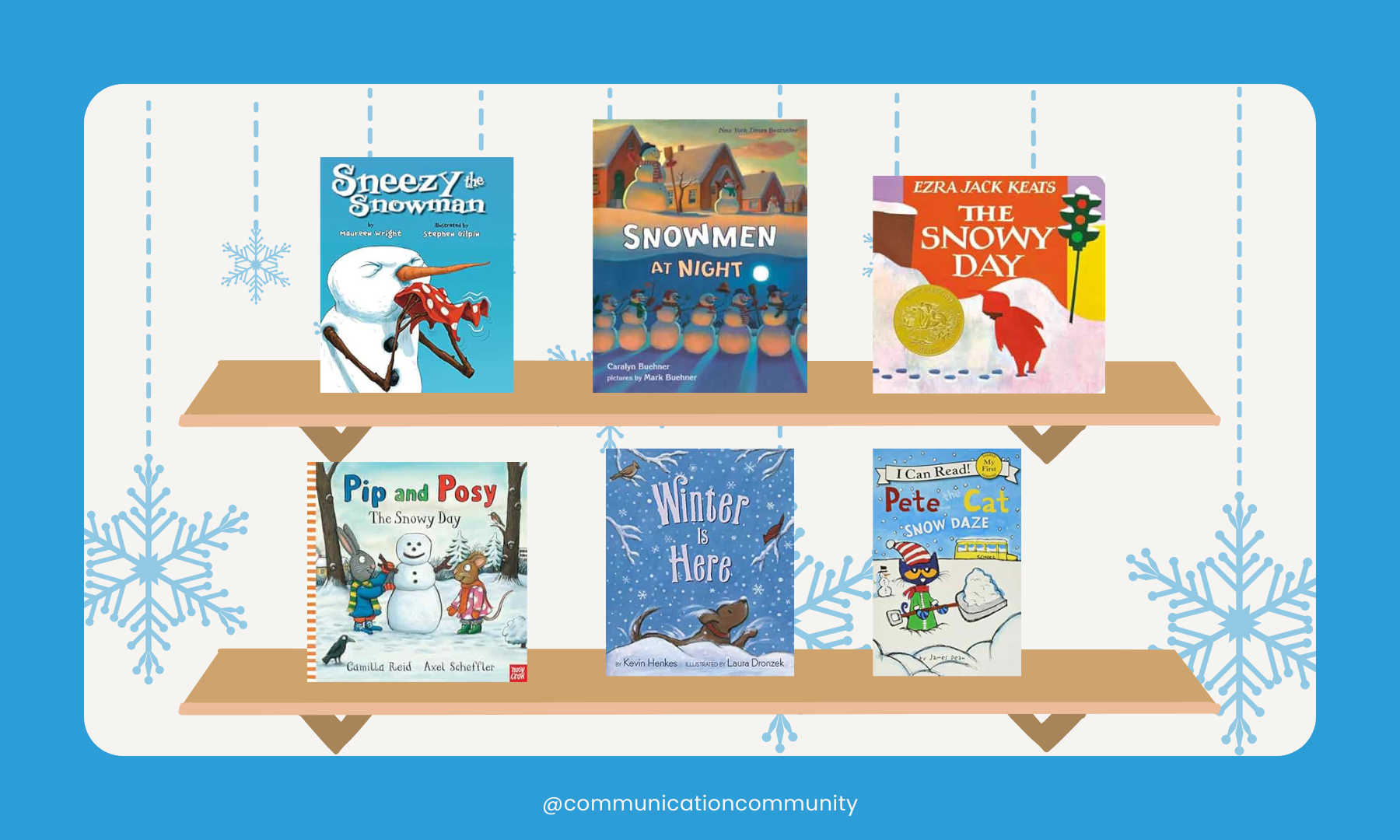
20 Winter Books for Speech Therapy
Below are a number of our winter-themed books organized by ways they can be used in speech therapy sessions. You might notice that many books fall into more than one category - versatility for the win!
*Tip: If I cannot get the physical copy, or if I am using them for a teletherapy session, there are many read-aloud videos on YouTube! I try to find videos that do not zoom in on certain parts of the page so that I can pause them at any point and everyone can see all of the words and pictures on the page.
Winter-Themed Books for Vocabulary (Speech Therapy)
- The Snowy Day by Ezra Jack Keats
- The Mitten by Jan Brett
- Winter is Here by Kevin Henkes
- How to Catch a Snowman by Adam Wallace
- Pete the Cat: Snow Daze by James Dean
- Sneezy the Snowman by Maureen White
- Over and Under the Snow by Kate Messner
- Winter Dance by Marion Dane Bauer
Winter-Themed Books for Sequencing (Speech Therapy)
- The Snowy Day by Ezra Jack Keats
- The Mitten by Jan Brett
- Winter is Here by Kevin Henkes
- Froggy Gets Dressed by Jonathan London
- The Snowman by Raymond Briggs (wordless)
- There was a Cold Lady Who Swallowed Some Snow by Lucille Colandro
- The Jacket I Wear in the Snow by Shirley Neitzel
Read more about sequencing here.
Winter-Themed Books for Rhyming (Speech Therapy)
- How to Catch a Snowman by Adam Wallace
- There was a Cold Lady Who Swallowed Some Snow by Lucille Colandro
- The Jacket I Wear in the Snow by Shirley Neitzel
- Snowmen at Night Caralyn Buehner
- Bear Snores On by Karma Wilson
Read more about phonological awareness (including rhyming) here.
Winter-Themed Books for Predicting/Inferences (Speech Therapy)
- How to Catch a Snowman by Adam Wallace
- Froggy Gets Dressed by Jonathan London
- Sneezy the Snowman by Maureen White
- There was a Cold Lady Who Swallowed Some Snow by Lucille Colandro
- Red Sled by Lita Judge (mostly wordless)
Read more about inferencing here.
Winter-Themed Books for Activities e.g., Playing in the Snow (Speech Therapy)
- The Snowy Day by Ezra Jack Keats
- How to Catch a Snowman by Adam Wallace
- Pete the Cat: Snow Daze by James Dean
- Froggy Gets Dressed by Jonathan London
- Snowmen at Night Caralyn Buehner
- Owl Moon by Jane Yolen
- A Loud Winter’s Nap by Katy Hudson
Winter-Themed Books for Prepositions, Spatial Concepts, and Descriptions (Speech Therapy)
- The Snowy Day by Ezra Jack Keats
- Winter is Here by Kevin Henkes
- Over and Under the Snow by Kate Messner
- The Biggest Snowman Ever by Steven Kroll
- Snowballs by Lois Ehlert
- Winter is Here by Kevin Henkes
Winter-Themed Books for Social-Emotional Learning (Speech Therapy)
- Pete the Cat: Snow Daze by James Dean
- The Biggest Snowman Ever by Steven Kroll
- A Loud Winter’s Nap by Katy Hudson
- Pip and Posy: The Snowy Day by Axel Scheffler
Read more about social-emotional learning here.
Winter-Themed Books for Preschool & Early Elementary Students
- The Mitten by Jan Brett
- Winter is Here by Kevin Henkes
- Pete the Cat: Snow Daze by James Dean
- Froggy Gets Dressed by Jonathan London
- There was a Cold Lady Who Swallowed Some Snow by Lucille Colandro
- The Jacket I Wear in the Snow by Shirley Neitzel
- Snowmen at Night Caralyn Buehner
- Bear Snores On by Karma Wilson
- Snowballs by Lois Ehlert
- Winter is Here by Kevin Henkes
- Pip and Posy: The Snowy Day by Axel Scheffler
Winter-Themed Books for Kindergarten to 2nd Grade Students
- The Snowy Day by Ezra Jack Keats
- How to Catch a Snowman by Adam Wallace
- Sneezy the Snowman by Maureen White
- Over and Under the Snow by Kate Messner
- Winter Dance by Marion Dane Bauer
- The Snowman by Raymond Briggs (wordless)
- Red Sled by Lita Judge (mostly wordless)
- Owl Moon by Jane Yolen
- The Biggest Snowman Ever by Steven Kroll
- A Loud Winter’s Nap by Katy Hudson
Additional Extension Activities for Winter Books
Explore winter senses with videos, crafts, and toys!
- Snow Plow Truck Tunes Video
- Snow Plow Job Jams Video
- Instant Snow
- Winter Make-a-Face Stickers
- Winter Coloring Book
- Winter Sensory Pack
- Arctic Animals Toy Set
Find More Winter Speech Therapy Favorites
We have a number of other great winter resources on our site!
- Winter Short Stories with WH Questions: Engaging ELA & Speech Therapy Activities
- Holiday (and winter) Wordless Videos
- 6 Fun Winter Activities for Speech and Language
This post contains some affiliate links and we are (slightly) compensated if you use them, but all opinions are our own. We appreciate the support!
Citations
Horst, J. S., Parsons, K. L., & Bryan, N. M. (2011). Get the story straight: Contextual repetition promotes word learning from storybooks. Frontiers in Psychology, 2, 17. https://doi.org/10.3389/fpsyg.2011.00017
